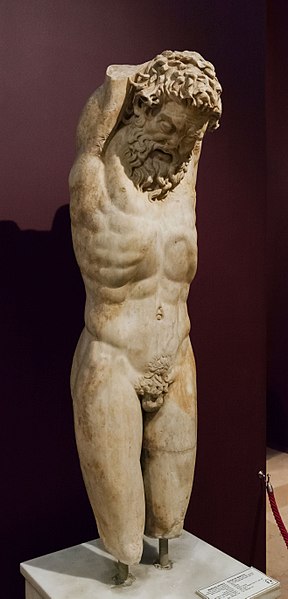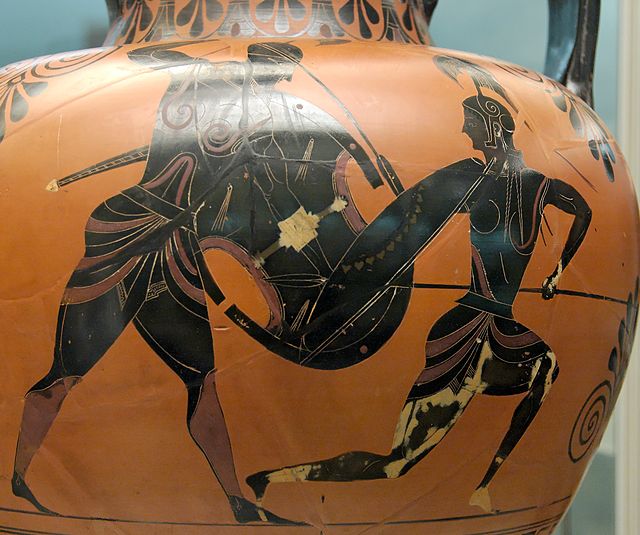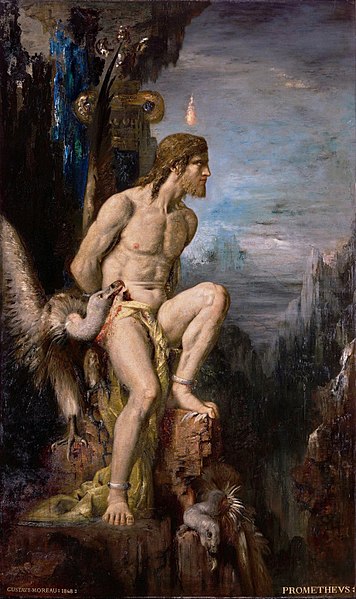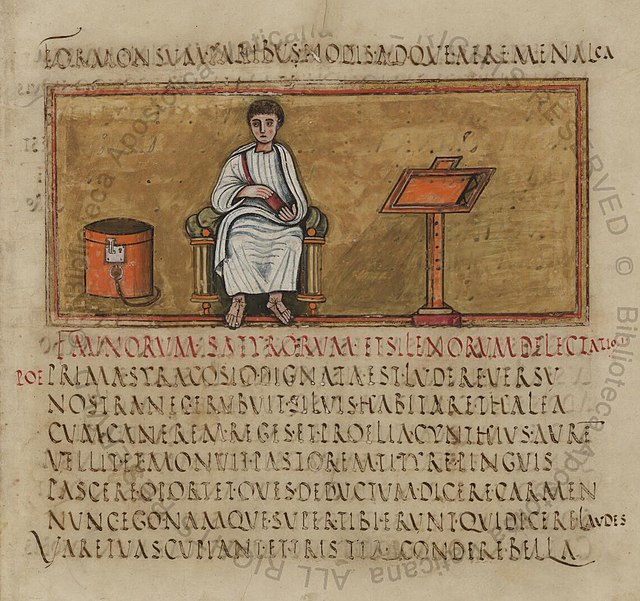In Greek mythology, the satyr Marsyas is a central figure in two stories involving music: in one, he picked up the double oboe (aulos) that had been abandoned by Athena and played it; in the other, he challenged Apollo to a contest of music and lost his hide and life. In antiquity, literary sources often emphasize the hubris of Marsyas and the justice of his punishment.
Marsyas receiving Apollo's punishment, İstanbul Archaeology Museum
Hellenistic Marsyas playing the aulos, with dedication in Greek to the god Oxus, by "Atrosokes", a Bactrian name. Temple of the Oxus, Takht-i Sangin, 200-150 BC. National Museum of Antiquities of Tajikistan.
Apollo flaying Marsyas in Apollo and Marsyas by José de Ribera
Marsyas tied, by Peter Paul Rubens, Louvre Museum
Greek mythology is the body of myths originally told by the ancient Greeks, and a genre of ancient Greek folklore, today absorbed alongside Roman mythology into the broader designation of classical mythology. These stories concern the ancient Greek religion's view of the origin and nature of the world; the lives and activities of deities, heroes, and mythological creatures; and the origins and significance of the ancient Greeks' cult and ritual practices. Modern scholars study the myths to shed light on the religious and political institutions of ancient Greece, and to better understand the nature of myth-making itself.
Achilles and Penthesileia by Exekias, c. 540 BC, British Museum, London
Prometheus (1868 by Gustave Moreau). The myth of Prometheus first was attested by Hesiod and then constituted the basis for a tragic trilogy of plays, possibly by Aeschylus, consisting of Prometheus Bound, Prometheus Unbound, and Prometheus Pyrphoros.
The Roman poet Virgil, here depicted in the fifth-century manuscript, the Vergilius Romanus, preserved details of Greek mythology in many of his writings.
Phaedra with an attendant, probably her nurse, a fresco from Pompeii, c. 60 – c. 20 BC








